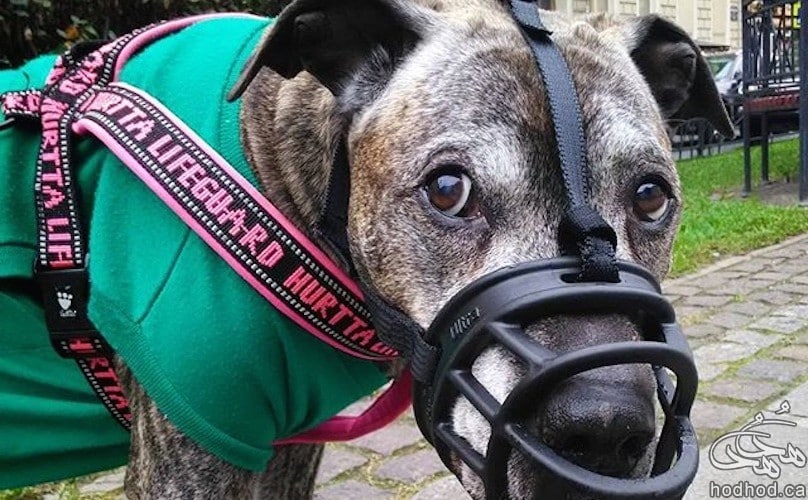On June 8, 2016, Pointe-aux-Trembles resident Christiane Vadnais died after being mauled by what was described by police to be a pit bull.
Ten days later, Montreal Mayor Denis Coderre announced in a press conference that the city and its 19 boroughs would be seeking the approval of their respective councils in September to ban the controversial pets.
More than 100 protesters—and some dogs—gathered at Montreal’s City Hall on Sunday, where the City Council is set to officialize a ban on pit bulls on Sept. 26. The ban will affect different breeds such as American Pit Bull Terrier, Staffordshire Terrier, and a few others according to Montreal bylaws.
Pit bull owners such as Maya Rice have been protesting against the proposed ban regularly since June.
“The whole issue is that owners get them not understanding that they can be aggressive like any dog because they’re extremely, extremely loyal,” said Rice, who has attended every protest against the pit bull ban.
The organizers, Protection Pit Bulls and S.O.S. Bull Terrier Canada, called upon owners to gather in front of Montreal’s City Hall, where the group started its walk. Protection Pit Bulls, an organisation made up of 11 volunteers, has already met the provincial government.
“Two volunteers went to meet [Philippe] Couillard’s team. They pointed out that in every place where bans were put into effect such as Ontario and Calgary, the rate of dog biting didn’t diminish and people were not protected,” said Sara Van Houtte, one of Protection Pit Bull’s members.
Shortly after the death of Vadnais, the provincial government created a working group on dangerous dogs led by Public Safety Minister Martin Coiteux. The group released its final report on Aug. 31. It had 10 recommendations but none that called for a ban.
Now Quebec province will finally act to regulate dangerous dogs. On Wednesday, the government gave notice of its intention to table legislation in the National Assembly on Thursday covering dogs.
“It has always been our intention to table such a law,” Public Security Minister Martin Coiteux told reporters on his way into question period.
“It took a bit longer because, you know, there was a period of time where there was a lack of lawyers available to the government. They have come back, so we can proceed now.”
Coiteux was referring to a long strike by government lawyers and notaries this winter that paralyzed the legislative process.
The minister did not outline the details of the bill because it has not been tabled, but said it will be titled an “act to promote the protection of persons by establishing a framework for the regulations of dogs.”
Sources, however, indicated the bill will propose an outright ban on dangerous dogs, but also include a grandfather clause for people with such animals to give them time to adjust.
The bill will be province-wide, but will leave sufficient latitude to municipalities to apply it depending on their individual situations.
But it will create — for the first time — categories of dogs, from ordinary to potentially dangerous to dangerous, an official said.

